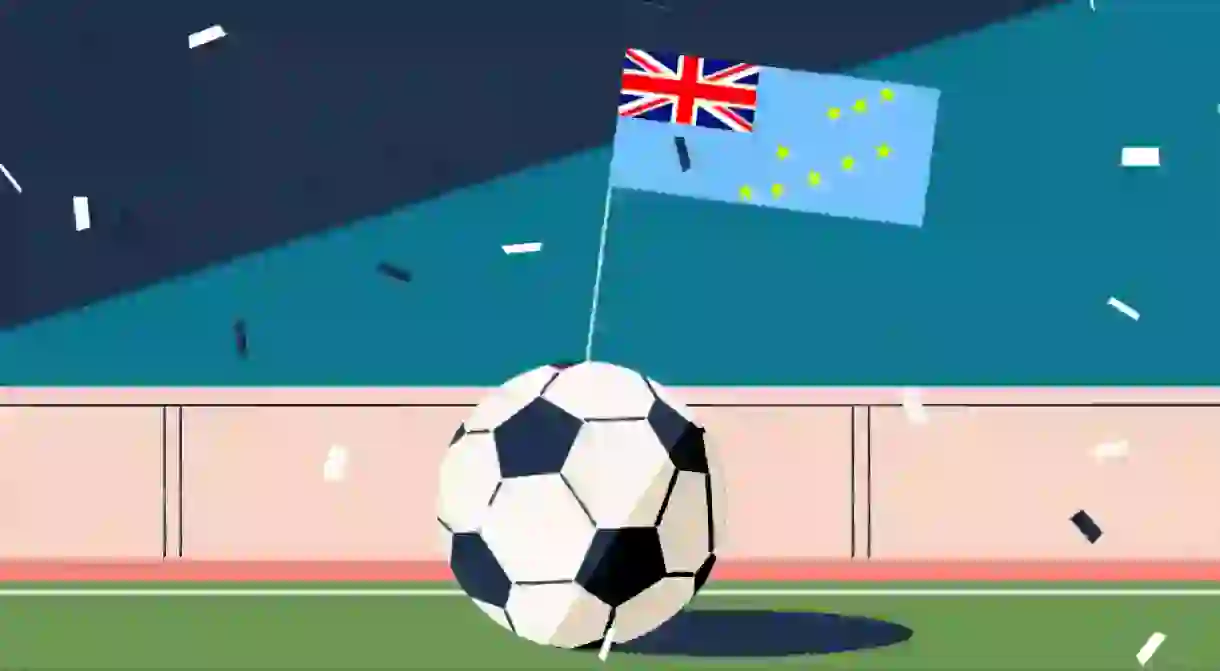A Brief Guide to Tuvalu

Discover more about Tuvalu, the tiny Pacific nation that has enjoyed independence for nearly 50 years.
Location:
Consisting of nine “islands”, Tuvalu sits in the middle of the Pacific Ocean, roughly halfway between Hawaii and Australia. Of the nine islands, three are true islands (Nanumanga, Niutao, Niulakita), and six are actually atolls (Funafuti, Nanumea, Nui, Nukufetau, Nukulaelae and Vaitupu).
History:
Studies in Tuvalu’s Caves of Nanumanga claim to have found evidence of fire from thousands of years ago, although its validity is disputed. It was certainly inhabited long before European settlers spied the islands in the mid-16th century. Various European expeditions across the Pacific gave the islands different names, without ever settling there permanently, until Arent Schuyler de Peyster labelled Nukufetau and Funafuti as “Ellice’s Islands or “the Ellice Islands” after the English politician Edward Ellice. The name was later extended to include all nine islands.
In the mid-19th century Christian missionaries became more frequent visitors, while Peruvian ships began recruiting (or kidnapping, depending on which side of the debate you sit on) men from islands in the Pacific, including those making up Tuvalu, to help with the extreme labour shortage that they were experiencing. In 1892 the Ellice Islands became a British Protectorate, and then in 1916 the Gilbert and Ellice Islands colony (made up of Tuvalu with what is now Kirbati) became an official British colony.
In the Second World War the islands were occupied by Japanese soldiers before locals helped American troops build small airfields and stations to unload supplies from American ships. One of these airfields was later developed into Funafuti International Airport.
With the end of the Second World War came the the United Nations Special Committee on Decolonization. Local government processes were introduced until Tuvalu had its own general election in 1974. A year later it became a separate British dependency, before gaining full independence in 1978. In 2000, Tuvalu joined the United Nations.
Tuvalu are competing at the 2018 CONIFA World Cup, here’s everything you need to know about the tournament.
Political status:
An official independent state, Tuvalu has its own language, currency, religion, government (headed up by its president), and enjoys good relationships with neighbouring nations. It gained its independence from Great Britain in the late 1970s, but Elizabeth II remains the nation’s official monarch.
Demographics:
The majority of Tuvalu’s population are of Polynesian descent, with a Micronesian minority. Similarly, the Tulavuan language also has its roots in Polynesia, and is similar to Samoan, Tongan and Maori. Although English is also a national language, it is used very little in day-to-day life by most Tulavuans.
According to the country’s constitution, there is a freedom to practice any religion, but over 90% adhere to the Church of Tuvalu. There are tiny pockets of other religions, including forms of Catholicism and Islam.
Profile:
Population: 10,600 approx.
Capital: Funafuti
Major languages: Tuvaluan, English
Currency: Tuvaluan dollar, Australian dollar
Major religions: Church of Tuvalu













